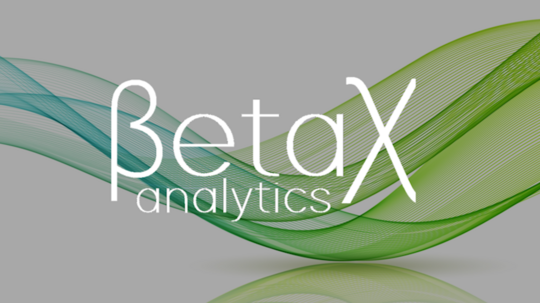
It’s been said that time is money, but these days, so is data.
While many companies understand this, their hands are tied trying to fully grasp the surplus of information at their fingertips both quickly and masterfully, while still trying to get anything done. It becomes trickier in the arenas of employee health care, benefits, and coverage.
The East Greenwich-based BetaXAnalytics team understands this, and entered the scene in 2016 as a sort of translator-turned-storyteller between what the health data says and what it actually means for employers, payers and providers. In their own words, the team’s work “saves health and pharmacy dollars and maximizes revenue by turning complex health care data into transparent, actionable and meaningful insights.” Essentially, they're trying to help companies save money in time and in data, a two-for-one deal.
Shannon Shallcross, CEO and co-founder of BXA, said that the team became aware of the need for data-based translators during their shared time at a wellness company. “We worked with huge clients: J.P. Morgan and Google and Disney, and we were blown away at the time,” Shallcross said. “At the end of the day, many employers were really [confounded] on how to save money [and] what was driving cost … and they needed transparent answers.”
Part of the problem is the proliferation of “big data” thrown around to make decisions. “What we have noticed is that these companies will dump lots of data in front of [employees],” Shallcross said. While using all this data — to, say, determine health care plan decisions — isn’t necessarily a bad thing, many times those people analyzing the information are HR leaders who don’t have the necessary expertise to find the insights that translate into significant financial results.
Enter BXA. “We’re like health care consultants who are very data-driven,” Shallcross said. “We take in all [a client's] health insurance claims, all their pharmaceutical claims to paint a very simple picture with words, as well as visuals, to show what’s going on [with their money].”
The team begins with a soup-to-nuts conversation with clients in order to best understand their processes. “We try to find out as much backstory before we look at any data,” Shallcross said. “It helps to set the scene, in terms of what their cost structure looks like. We can have little better of an idea [of] their overall benefit strategy.”
With a foundation laid, BXA then takes a data feed of the client’s health schemes and analyzes it with their software. “That is something that makes us different,” she continued. “We did build the system to analyze data. We took open source tools and combined them with a tool set and an algorithm we have written.” And it does all this without eroding the data subjects’ privacy; Shallcross emphasized the process adheres to HIPAA requirements (she should know — she’s a member of the Health Information Exchange Advisory Commission).
Once all that’s complete, “we give them a story they can tell … that actually makes sense; it’s not just a bunch of health-related jargon,” Shallcross said. The decisions companies go on to make with the data is up to them.
“Our motivations for doing what we’re doing are very pure; we simply want to provide transparency,” Shallcross said, speaking to the creation of BXA with partners Charles Wentworth, Phillip Murphy and epidemiologist Mark Regine. “So, for people who are looking to save money … we can help to guide them to those solutions.”
It was this desire for purity that kept the startup self-funded. “Any investor will want something that is very scalable,” Shallcross said. “That is contrary to what we’re trying to do, which is tell a story, to explain what is behind the data, just not put it in front of people.” Or, as they say on their website, “use their powers for good.”
One of the ways they’re looking to do that, beyond their day-to-day mission, is partnering with the University of Rhode Island School of Pharmacy next spring. Together, they’ll provide students the opportunity to do rotations through BXA. “These rotations will be part of their curriculum, so they can learn what we do and about how medical and pharmacy analytics can help to improve population health and drive down healthcare costs,” she said.








